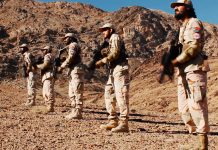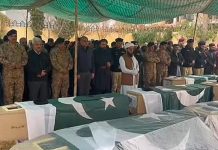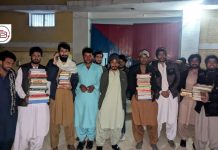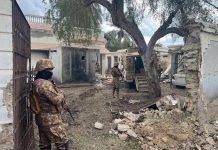Thousands took to the streets in Quetta and Karachi on Sunday, marking the beginning of the Baloch Yakjehti Committee’s (BYC) third phase of protests. These rallies, including significant participation from women and children, underscored growing concerns about human rights violations in Balochistan.
In Quetta, demonstrators started at Balochistan University and marched throughout the city. They voiced their opposition to enforced disappearances and “state oppression.” Simultaneously, In Karachi’s Malir, a substantial crowd, including a significant number of women and children, gathered in one of the largest protests the area has witnessed.
The protesters in both cities demanded an immediate end to what they describe as the “Baloch genocide” and “state oppression.“
They urged for a halt to the use of force in the Islamabad sit-in and the immediate acceptance of the protesters’ demands.
The protests also brought attention to “state-sponsored death squads“ in Balochistan. Demonstrators accused the state of not only failing to dismantle these squads but also allegedly relocating their members to intimidate Baloch protesters in Islamabad, predominantly comprising vulnerable groups like the elderly, women, and children.
Dr. MahRang Baloch of the BYC, in a social media statement on ‘X’, emphasized the pivotal role of Baloch women in the movement. She highlighted their suffering, particularly due to the illegal abductions of male family members, and praised the strong support from Malir, Karachi. “Our movement is for the safe future of our upcoming generations, and the support of Baloch people everywhere is essential,” she stated.
Additionally, Dr. MahRang extended her gratitude to the international community in a social media video message. She underscored the global importance of defending human rights and appealed for international support against the “Baloch Genocide.“
Dr. Baloch called on people worldwide to oppose injustice, advocate for human rights, and engage with human rights organizations to bring attention to the Baloch issue. She emphasized that collective action is crucial in holding Pakistani authorities accountable for their actions in Balochistan, asserting that this movement’s significance is not only crucial for the Baloch people but for the broader cause of human rights and justice worldwide.






























